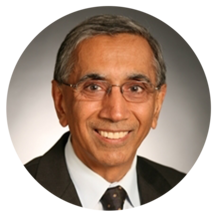About this Presentation
We have been taught that the “constraint” is the most important thing to consider when managing an organization. If you want to improve, you must focus there. Given that, how can some experts claim that you don’t need to know the “real” constraint, you can just “pick one”? How can approaches like Lean and Agile produce significant benefits, even though they don’t deal directly with constraints? How can people get the benefits of CCPM on complex projects, using networks with fewer than three hundred tasks? The answers lie in the huge discrepancy between the models we create and the work we actually do. Our models typically focus on task dependencies (we must do work A before work B) and resource dependencies (we need scarce resource C to do work A). But there is a third type of dependency we rarely consider: the “process dependency.” Process dependencies are the “dark matter” of work, often accounting for 80% or more of cycle times. They can be described as “we choose to do work A before work B, and/or using scarce resource C.” They are the processes–cultural, habitual, rarely questioned–that we have built up, sometimes over years and decades. They may be unique to an individual or shared across a huge group. They include concepts like multitasking, deadlines, stage-gate processes, and transfer batches. Process dependencies have to do with how we choose to do the work, not with how we must do it. They delay our work. But they’re also essential: without repeatable processes, we would have to reinvent everything, all the time. We need disciplined ways of identifying process dependencies and figuring out which to remove and which to keep. In this talk, Rob Newbold: Describes process dependencies and their importance; Talks about how methodologies like TOC, Agile, and Lean enable success by identifying and addressing process dependencies; Derives a more generic process; and Concludes with some important, practical lessons that will help you improve speed and reduce waste no matter what methodologies you apply. Video length: 28:13. PDF: 10 slides.
What Will You Learn
To help you get the most value from this session, we’ve highlighted a few key points. These takeaways capture the main ideas and practical insights from the presentation, making it easier for you to review, reflect, and apply what you’ve learned.

Process dependencies are choices we make that slow things down. They are part of some kind of process, which could be a result of habits, culture, instincts, or standard procedures.
Most organizations are constrained by process dependencies. Addressing these dependencies can lead to significant improvements.
Methodologies like Lean and Agile have the tools and culture to aggressively attack process dependencies. However, they often miss the concept of the constraint.
Instructor(s)
Robert Newbold

Ms Alka Wadhwa
Alka Wadhwa is an experienced consultant and process improvement expert with over 24 years of expertise in the Theory of Constraints (TOC), Lean Six Sigma, and organizational performance optimization. She has successfully led projects in healthcare, financial services, and manufacturing, driving significant improvements such as a 67% boost in hospital operations and a 140% increase in outpatient visits.
Previously, Alka Wadhwa spent 17+ years at GE Global Research Center, where she led initiatives to enhance various GE businesses through advanced technologies, process redesign, and system optimization. Founder of Better Solutions Consulting, LLC, she specializes in using TOC, Six Sigma, and data analytics to streamline operations and build high-performance teams.
Her work has earned her multiple accolades, including the Empire State Award of Excellence in healthcare.

Dr Gary Wadhwa
Dr. Gary Wadhwa is a Board Certified Oral & Maxillofacial Surgeon with extensive experience in the field. He completed his Oral & Maxillofacial Surgery training at Montefiore Hospital, Albert Einstein College of Medicine in Bronx, NY, and has served as an Attending at prestigious institutions like St. Peters Hospitals, Ellis Hospital, and Beth Israel Hospital in NY. With a career spanning over two decades, he was the former CEO and President of a group specialty practice in NY from 1994 to 2015. Dr. Wadhwa holds an MBA from UT at Knoxville, TN, and has undergone additional training in System Dynamics at MIT, Health System Management at Harvard Business School, and Entrepreneurship and healthcare innovations at Columbia Business School. Committed to expanding access to Oral & Maxillofacial Surgery care, he is currently engaged in a meaningful project to provide healthcare services to underserved populations in inner city and rural areas through non-profit Community Health Centers.
